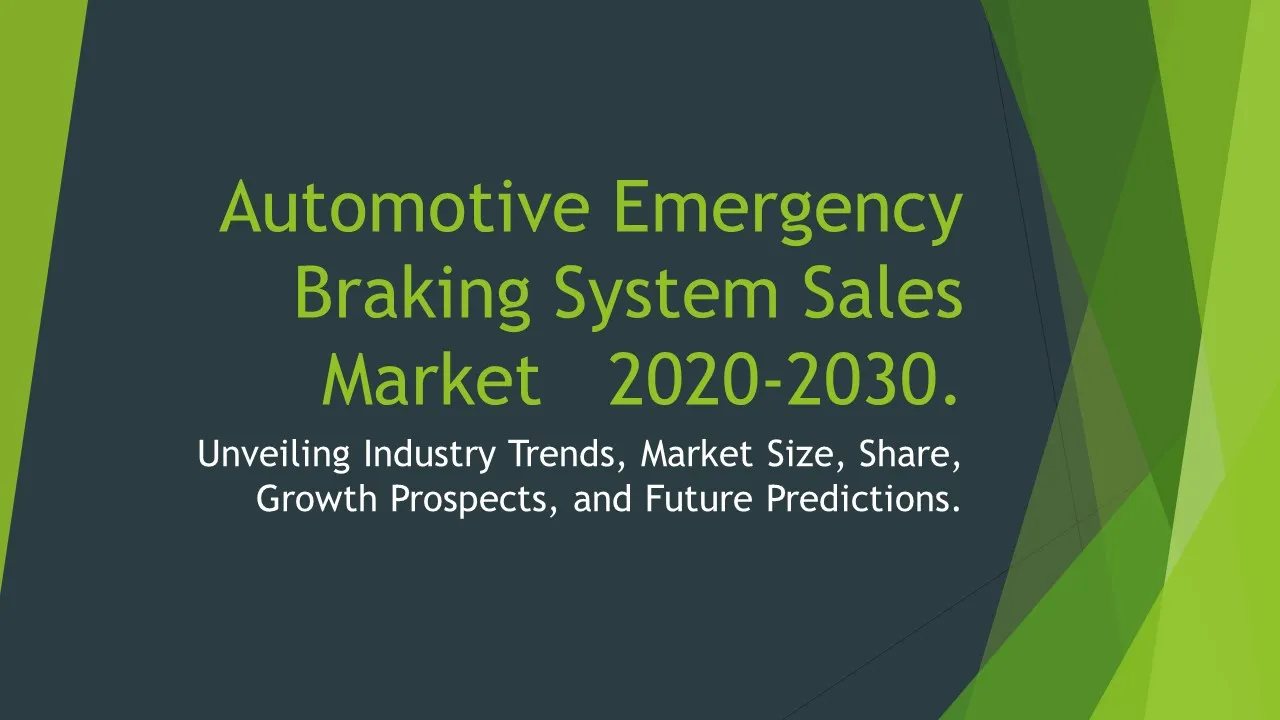Electric Car Chargers Sales
Electric Car Chargers Market Segments - by Product Type (AC Chargers, DC Chargers, Wireless Chargers, Portable Chargers, Home Chargers), Application (Residential, Commercial, Public), Distribution Channel (Online Stores, Specialty Stores, Supermarkets/Hypermarkets, Direct Sales), Connector Type (CHAdeMO, CCS, Type 2, Type 1, Tesla), and Region (North America, Europe, Asia Pacific, Latin America, Middle East & Africa) - Global Industry Analysis, Growth, Share, Size, Trends, and Forecast 2025-2035
- Report Preview
- Table Of Content
- Segments
- Methodology
Electric Car Chargers Sales Market Outlook
The global electric car chargers sales market is poised for substantial growth, estimated to reach approximately USD 40 billion by 2035, with a compound annual growth rate (CAGR) of around 25% during the forecast period from 2025 to 2035. This growth can be attributed to the rising adoption of electric vehicles (EVs), increasing government initiatives promoting electric mobility, and the expanding charging infrastructure worldwide. Moreover, advancements in charging technology, such as faster charging solutions and wireless charging systems, are contributing to market growth. The heightened awareness of environmental issues and the need for reducing carbon emissions are further driving consumers toward electric vehicles, thereby boosting demand for electric car chargers. With the projected increase in electric vehicle sales, the electric car chargers market is expanding rapidly, leading to innovations and investments in this sector.
Growth Factor of the Market
The growth of the electric car chargers market is significantly driven by multiple factors aimed at enhancing the electric vehicle ecosystem. First and foremost, the increasing penetration of electric vehicles globally catalyzes the demand for efficient and accessible charging solutions. As governments worldwide implement stringent emission regulations and offer incentives for EV purchases, consumers are increasingly inclined to opt for electric vehicles, thereby increasing the need for robust charging infrastructure. Moreover, the advancements in battery technology that allow for longer driving ranges and faster charging times significantly lessen range anxiety among consumers, fostering further adoption of electric vehicles. Additionally, public-private partnerships play a crucial role in expanding charging networks, especially in urban areas, making it easier for consumers to transition to electric mobility. The growing emphasis on renewable energy sources to power electric vehicle charging stations is also creating an environmentally friendly charging ecosystem, which is attractive to eco-conscious consumers.
Key Highlights of the Market
- Significant increase in electric vehicle sales drives demand for charging infrastructure.
- Government initiatives and incentives boost market growth.
- Technological advancements enhance charging speeds and convenience.
- Rising consumer awareness regarding environmental issues influences market trends.
- Public-private partnerships expand charging networks in urban areas.
By Product Type
AC Chargers:
AC chargers, or alternating current chargers, are widely used for charging electric vehicles at home and in commercial settings. They are typically slower than DC chargers but are sufficient for overnight charging. The simplicity and cost-effectiveness of AC chargers make them a popular choice among residential users who charge their vehicles overnight. These chargers come in various power ratings and can be integrated into existing electrical systems. The rising number of residential EV owners is contributing to the increased sales of AC chargers as they provide a convenient solution for regular charging without the need for specialized infrastructure.
DC Chargers:
DC chargers, known as direct current chargers, provide faster charging compared to AC chargers and are predominantly used in public charging stations and commercial applications. The rapid charging capabilities of DC chargers significantly reduce charging time, making them attractive for public infrastructure installations. These chargers are essential for long-distance travel, allowing EV users to recharge their vehicles in a matter of minutes. The growing demand for high-speed charging solutions, especially in urban areas and along highways, is fueling the adoption of DC chargers, thereby driving market growth in this segment.
Wireless Chargers:
Wireless chargers represent an innovative advancement in electric vehicle charging technology, allowing for the charging of vehicles without physical cables. This technology utilizes electromagnetic fields to transfer energy from the charging pad to the vehicle, enhancing user convenience and reducing wear and tear on plugs and sockets. The adoption of wireless charging is still in its early stages, but its potential to simplify the charging experience is garnering interest from both consumers and manufacturers. As technology matures and infrastructure develops, the segment is expected to grow in tandem with increasing consumer demand for convenience-oriented solutions.
Portable Chargers:
Portable chargers offer flexibility and convenience for electric vehicle owners who may need to charge their vehicles in locations where traditional charging stations are not available. These chargers can be easily carried in the vehicle and used when needed, providing a safety net for users concerned about running out of charge. The market for portable chargers is gaining traction, especially among urban EV owners who may not always have access to dedicated charging infrastructure. Additionally, as battery technology improves, portable chargers are becoming more efficient, contributing to the growth of this segment.
Home Chargers:
Home chargers, designed for personal use, are essential for electric vehicle owners who prefer charging their vehicles in the comfort of their homes. These chargers can be installed in garages or driveways, enabling users to charge their EVs overnight. The convenience of having a home charging station is a major draw for consumers, as it eliminates the need to visit public charging stations regularly. The residential segment is experiencing significant growth, driven by increasing electric vehicle ownership and government incentives for home charging installations. Furthermore, advancements in smart charging technology are enhancing the functionalities of home chargers, allowing users to monitor usage and optimize charging times.
By Application
Residential:
The residential application segment is a major driver of the electric car chargers market, as the majority of electric vehicle owners prefer to charge their cars at home. The convenience of charging overnight allows users to start each day with a full battery without the need to visit public charging stations. As electric vehicle ownership continues to rise, so does the demand for home charging solutions, making this segment a focal point for manufacturers. Additionally, government incentives and regulations promoting home charging installations are further propelling growth in the residential market, creating a favorable landscape for both consumers and charging solution providers.
Commercial:
The commercial application segment encompasses charging solutions used in business environments, including workplaces, hotels, and shopping centers. Businesses recognize the value of providing electric vehicle charging options for their employees and customers, which can enhance brand image and attract eco-conscious consumers. The increasing number of electric vehicles on the road is prompting businesses to invest in commercial charging infrastructure. This segment is characterized by a growing presence of DC fast chargers, allowing for quick turnarounds for users who need to charge while engaged in other activities. As the importance of sustainability continues to rise, commercial applications of electric car chargers are expanding rapidly.
Public:
The public application segment includes charging stations available for general use in urban centers, highway rest stops, and other public locations. This segment is critical for alleviating range anxiety among electric vehicle users, as it provides the necessary infrastructure for long-distance travel. Public charging stations are increasingly being equipped with fast charging capabilities, catering to the needs of users who require quick access to charging solutions. As governments invest in expanding public charging networks and private companies enter the market, this segment is expected to see significant growth, contributing to the overall development of the electric car chargers market.
By Distribution Channel
Online Stores:
Online stores have become a significant distribution channel for electric car chargers as consumers increasingly turn to e-commerce for their purchasing needs. The convenience of browsing various products, alongside the ability to compare prices and read reviews, makes online shopping an attractive option for consumers seeking charging solutions. E-commerce platforms offer a wide variety of products, including different types of chargers, making it easier for consumers to find the ideal match for their electric vehicles. As online retail continues to grow, this distribution channel is expected to play an essential role in the electric car chargers market.
Specialty Stores:
Specialty stores focusing on automotive and electric vehicle products serve as a vital distribution channel for electric car chargers. These stores often provide specialized knowledge and expertise regarding electric vehicle charging solutions, guiding consumers in selecting the right chargers for their needs. The presence of knowledgeable staff and hands-on demonstrations can enhance the shopping experience, leading to informed purchasing decisions. As more consumers become aware of electric vehicles and their charging needs, specialty stores are likely to see increased foot traffic, resulting in growth in this distribution channel.
Supermarkets/Hypermarkets:
Supermarkets and hypermarkets are expanding their product offerings to include electric car chargers, capitalizing on the growing demand for sustainable automotive solutions. By placing chargers in high-traffic retail environments, these stores cater to consumers who prefer a one-stop shopping experience. This distribution channel allows consumers to conveniently purchase electric car chargers while shopping for other necessities. As the prevalence of electric vehicles increases, supermarkets and hypermarkets are likely to enhance their product lines to accommodate this growing market, further driving sales.
Direct Sales:
Direct sales are another important distribution channel for electric car chargers, particularly for manufacturers and specialized suppliers. This channel allows companies to establish direct relationships with customers, providing personalized service and tailored solutions. Direct sales often include installation services, which can be a critical factor for consumers when purchasing home chargers. Companies utilizing direct sales strategies can offer value-added services, such as maintenance and customer support, further enhancing customer satisfaction. As electric vehicle adoption continues to grow, the direct sales channel is expected to see robust demand.
By Connector Type
CHAdeMO:
CHAdeMO is one of the pioneering fast-charging standards for electric vehicles, primarily used by Japanese manufacturers. This connector type allows for high-speed charging, making it suitable for public charging stations. As electric vehicle adoption increases, CHAdeMO has maintained a significant presence in the market, particularly in regions with a large number of Japanese EV brands. Its compatibility with a range of vehicle models helps drive demand for charging stations equipped with CHAdeMO connectors, contributing to the growth of the segment.
CCS:
CCS, or Combined Charging System, is gaining traction as a widely adopted charging standard in many regions, particularly in Europe and North America. CCS connectors support both AC and DC charging, making them versatile solutions for various applications. The growing number of vehicles compatible with CCS connectors is driving the expansion of charging infrastructure equipped with this technology. As more manufacturers adopt CCS as their standard, the segment is expected to witness significant growth, cementing its position in the electric car chargers market.
Type 2:
The Type 2 connector is prevalent in Europe and is commonly used for AC charging in residential and public charging stations. Its design supports three-phase charging, enabling faster charging times compared to traditional single-phase systems. As the demand for electric vehicles increases, the Type 2 connector is becoming a standard in Europe, driving sales of charging infrastructure that supports this connector type. The flexibility and efficiency of Type 2 connectors are attracting both consumers and businesses, further contributing to market growth.
Type 1:
Type 1 connectors are primarily used in North America and Japan for AC charging applications. Although their popularity is being challenged by more versatile connectors like CCS, Type 1 still holds a significant share in the market due to the number of existing electric vehicles that utilize this standard. The compatibility of Type 1 connectors with various charging solutions will continue to support their presence in the market, particularly for home and slower public charging stations. As the market evolves, Type 1 connectors are expected to remain relevant for existing electric vehicle models.
Tesla:
Tesla connectors are proprietary charging solutions developed by Tesla for their electric vehicles. Tesla has created a robust charging network of Superchargers, providing fast charging capabilities specifically designed for Tesla owners. This exclusive infrastructure encourages Tesla vehicle owners to utilize their charging solutions, fostering brand loyalty. While Tesla connectors are only compatible with Tesla vehicles, the company's success in developing a comprehensive charging network has set a benchmark for other manufacturers, compelling them to enhance their charging offerings. As the number of Tesla vehicles continues to grow, the demand for Tesla-specific charging solutions is expected to remain strong.
By Region
The North American electric car chargers market is anticipated to grow at a CAGR of approximately 24% from 2025 to 2035, driven by the increasing adoption of electric vehicles across the region. The United States is leading this growth, with several states implementing incentives for EV purchases and expanding charging infrastructure. Public charging stations are proliferating, addressing range anxiety and supporting long-distance EV travel. Moreover, the growing presence of automotive manufacturers investing in electric vehicle technology and charging solutions is further propelling market growth in North America. Overall, the emphasis on sustainable transportation solutions is expected to contribute significantly to the growth of electric car chargers in this region.
In Europe, the electric car chargers market is experiencing rapid growth due to the strong regulatory framework promoting electric mobility and the increasing number of electric vehicles on the road. The European Union has set ambitious targets for reducing greenhouse gas emissions, resulting in substantial investments in charging infrastructure across member states. Countries like Germany, France, and the UK are leading the charge with extensive public charging networks. The growing popularity of AC and DC charging solutions is facilitating the expansion of the electric car chargers market, making Europe a central hub for electric vehicle charging innovations. Overall, the demand for electric car chargers in Europe is anticipated to continue its upward trajectory, paralleling the increasing adoption of electric vehicles.
Opportunities
The electric car chargers market is ripe with opportunities, particularly in expanding infrastructures in underserved areas. Urban centers are experiencing rapid growth in electric vehicle ownership, yet many regions still lack sufficient charging stations. Companies that invest in establishing charging networks in these underserved areas can capitalize on the growing demand while playing a pivotal role in facilitating electric vehicle adoption. Additionally, as technology evolves, there is an opportunity for innovation in charging solutions, such as ultra-fast charging stations and wireless charging technologies. This presents a valuable avenue for manufacturers and service providers looking to differentiate themselves in a competitive market. Furthermore, partnerships with local governments and private entities can help accelerate the development of charging infrastructure, ensuring that it meets the needs of a growing consumer base.
Another significant opportunity lies in integrating renewable energy sources into charging solutions. With the global shift toward sustainable energy, electric car chargers powered by solar or wind energy present an attractive option for environmentally conscious consumers. Companies can explore innovations in energy management systems that optimize charging times based on energy availability and consumer usage patterns. By offering eco-friendly charging solutions, businesses can appeal to a wider audience and contribute to reducing the carbon footprint of electric vehicle charging. Moreover, educational campaigns focused on the benefits of electric vehicles and charging technologies can help inform consumers and drive demand, creating a favorable environment for growth in the electric car chargers market.
Threats
Despite the promising growth trajectory of the electric car chargers market, several threats could hinder its progress. One of the primary concerns is the rapidly evolving technology landscape, which may lead to compatibility issues between various charging standards and electric vehicle models. As new technologies emerge, existing charging infrastructure may become obsolete, requiring significant investment to upgrade or replace. Additionally, competition from alternative fuel vehicles, such as hydrogen fuel cell vehicles, could divert consumer interest away from electric vehicles and their associated charging solutions. As the market evolves, addressing these challenges and ensuring compatibility across various charging solutions will be critical for maintaining growth momentum.
Moreover, the electric car chargers market faces restraining factors, including high installation costs and a lack of awareness among consumers regarding the benefits of electric vehicles and charging solutions. While government incentives are helping to mitigate some of these costs, the initial investment for setting up charging infrastructure can be significant. This poses a barrier to entry for many potential consumers and businesses looking to adopt electric vehicles. Furthermore, in regions with limited public charging stations, consumers may be hesitant to invest in electric vehicles due to concerns about range anxiety. Overcoming these barriers will be essential for accelerating the adoption of electric vehicles and the corresponding growth of the electric car chargers market.
Competitor Outlook
- ChargePoint
- EVBox
- ABB Ltd.
- Siemens AG
- Tesla, Inc.
- Electrify America
- Schneider Electric
- Blink Charging Co.
- Leviton Manufacturing Co.
- Greenlots (a Shell Group Company)
- Siemens Mobility
- Wallbox Chargers
- Allego
- Webasto Group
- FLO (AddÉnergie)
The competitive landscape of the electric car chargers market is characterized by a diverse array of players, each striving to establish a foothold in this rapidly evolving sector. Leading companies are investing heavily in research and development to create innovative charging solutions that cater to the growing demand for electric vehicles. Furthermore, partnerships and collaborations between manufacturers, technology providers, and governments are becoming increasingly common as they work to expand charging infrastructure and enhance user experience. The competition is not limited to established players; several startups are entering the market, bringing fresh ideas and technologies that challenge traditional business models. This vibrant competitive environment is driving advancements in charging technology and expanding the range of products available to consumers.
ChargePoint is one of the prominent players in the electric car chargers market, offering a comprehensive suite of charging solutions for residential, commercial, and public applications. With a robust network of charging stations and a cloud-based software platform, ChargePoint allows users to find, use, and manage their electric vehicle charging sessions efficiently. The company continues to expand its presence globally while focusing on innovation and customer experience. Another key player, EVBox, operates in more than 70 countries and specializes in scalable charging solutions that cater to various needs. Their emphasis on sustainability and integration with clean energy sources positions them favorably in the market as consumer demand for eco-friendly solutions grows.
ABB Ltd. stands out for its extensive experience in electrification and automation, providing advanced charging solutions for electric vehicles. The company focuses on ultra-fast charging technologies that reduce charging times significantly, attracting consumers looking for quick and efficient solutions. Siemens AG is also a significant competitor, leveraging its expertise in engineering and technology to deliver innovative electric vehicle charging infrastructure. The company's diverse range of charging solutions meets the demands of various sectors, from residential to commercial applications. As these major players continue to innovate and expand their offerings, the electric car chargers market is expected to experience consistent growth, driven by increased electric vehicle adoption and evolving consumer preferences.
1 Appendix
- 1.1 List of Tables
- 1.2 List of Figures
2 Introduction
- 2.1 Market Definition
- 2.2 Scope of the Report
- 2.3 Study Assumptions
- 2.4 Base Currency & Forecast Periods
3 Market Dynamics
- 3.1 Market Growth Factors
- 3.2 Economic & Global Events
- 3.3 Innovation Trends
- 3.4 Supply Chain Analysis
4 Consumer Behavior
- 4.1 Market Trends
- 4.2 Pricing Analysis
- 4.3 Buyer Insights
5 Key Player Profiles
- 5.1 EVBox
- 5.1.1 Business Overview
- 5.1.2 Products & Services
- 5.1.3 Financials
- 5.1.4 Recent Developments
- 5.1.5 SWOT Analysis
- 5.2 Allego
- 5.2.1 Business Overview
- 5.2.2 Products & Services
- 5.2.3 Financials
- 5.2.4 Recent Developments
- 5.2.5 SWOT Analysis
- 5.3 ABB Ltd.
- 5.3.1 Business Overview
- 5.3.2 Products & Services
- 5.3.3 Financials
- 5.3.4 Recent Developments
- 5.3.5 SWOT Analysis
- 5.4 Siemens AG
- 5.4.1 Business Overview
- 5.4.2 Products & Services
- 5.4.3 Financials
- 5.4.4 Recent Developments
- 5.4.5 SWOT Analysis
- 5.5 ChargePoint
- 5.5.1 Business Overview
- 5.5.2 Products & Services
- 5.5.3 Financials
- 5.5.4 Recent Developments
- 5.5.5 SWOT Analysis
- 5.6 Tesla, Inc.
- 5.6.1 Business Overview
- 5.6.2 Products & Services
- 5.6.3 Financials
- 5.6.4 Recent Developments
- 5.6.5 SWOT Analysis
- 5.7 Webasto Group
- 5.7.1 Business Overview
- 5.7.2 Products & Services
- 5.7.3 Financials
- 5.7.4 Recent Developments
- 5.7.5 SWOT Analysis
- 5.8 Siemens Mobility
- 5.8.1 Business Overview
- 5.8.2 Products & Services
- 5.8.3 Financials
- 5.8.4 Recent Developments
- 5.8.5 SWOT Analysis
- 5.9 Wallbox Chargers
- 5.9.1 Business Overview
- 5.9.2 Products & Services
- 5.9.3 Financials
- 5.9.4 Recent Developments
- 5.9.5 SWOT Analysis
- 5.10 Electrify America
- 5.10.1 Business Overview
- 5.10.2 Products & Services
- 5.10.3 Financials
- 5.10.4 Recent Developments
- 5.10.5 SWOT Analysis
- 5.11 Blink Charging Co.
- 5.11.1 Business Overview
- 5.11.2 Products & Services
- 5.11.3 Financials
- 5.11.4 Recent Developments
- 5.11.5 SWOT Analysis
- 5.12 Schneider Electric
- 5.12.1 Business Overview
- 5.12.2 Products & Services
- 5.12.3 Financials
- 5.12.4 Recent Developments
- 5.12.5 SWOT Analysis
- 5.13 FLO (AddÃÂnergie)
- 5.13.1 Business Overview
- 5.13.2 Products & Services
- 5.13.3 Financials
- 5.13.4 Recent Developments
- 5.13.5 SWOT Analysis
- 5.14 Leviton Manufacturing Co.
- 5.14.1 Business Overview
- 5.14.2 Products & Services
- 5.14.3 Financials
- 5.14.4 Recent Developments
- 5.14.5 SWOT Analysis
- 5.15 Greenlots (a Shell Group Company)
- 5.15.1 Business Overview
- 5.15.2 Products & Services
- 5.15.3 Financials
- 5.15.4 Recent Developments
- 5.15.5 SWOT Analysis
- 5.1 EVBox
6 Market Segmentation
- 6.1 Electric Car Chargers Sales Market, By Application
- 6.1.1 Residential
- 6.1.2 Commercial
- 6.1.3 Public
- 6.2 Electric Car Chargers Sales Market, By Product Type
- 6.2.1 AC Chargers
- 6.2.2 DC Chargers
- 6.2.3 Wireless Chargers
- 6.2.4 Portable Chargers
- 6.2.5 Home Chargers
- 6.3 Electric Car Chargers Sales Market, By Distribution Channel
- 6.3.1 Online Stores
- 6.3.2 Specialty Stores
- 6.3.3 Supermarkets/Hypermarkets
- 6.3.4 Direct Sales
- 6.1 Electric Car Chargers Sales Market, By Application
7 Competitive Analysis
- 7.1 Key Player Comparison
- 7.2 Market Share Analysis
- 7.3 Investment Trends
- 7.4 SWOT Analysis
8 Research Methodology
- 8.1 Analysis Design
- 8.2 Research Phases
- 8.3 Study Timeline
9 Future Market Outlook
- 9.1 Growth Forecast
- 9.2 Market Evolution
10 Geographical Overview
- 10.1 Europe - Market Analysis
- 10.1.1 By Country
- 10.1.1.1 UK
- 10.1.1.2 France
- 10.1.1.3 Germany
- 10.1.1.4 Spain
- 10.1.1.5 Italy
- 10.1.1 By Country
- 10.2 Asia Pacific - Market Analysis
- 10.2.1 By Country
- 10.2.1.1 India
- 10.2.1.2 China
- 10.2.1.3 Japan
- 10.2.1.4 South Korea
- 10.2.1 By Country
- 10.3 Latin America - Market Analysis
- 10.3.1 By Country
- 10.3.1.1 Brazil
- 10.3.1.2 Argentina
- 10.3.1.3 Mexico
- 10.3.1 By Country
- 10.4 North America - Market Analysis
- 10.4.1 By Country
- 10.4.1.1 USA
- 10.4.1.2 Canada
- 10.4.1 By Country
- 10.5 Middle East & Africa - Market Analysis
- 10.5.1 By Country
- 10.5.1.1 Middle East
- 10.5.1.2 Africa
- 10.5.1 By Country
- 10.6 Electric Car Chargers Sales Market by Region
- 10.1 Europe - Market Analysis
11 Global Economic Factors
- 11.1 Inflation Impact
- 11.2 Trade Policies
12 Technology & Innovation
- 12.1 Emerging Technologies
- 12.2 AI & Digital Trends
- 12.3 Patent Research
13 Investment & Market Growth
- 13.1 Funding Trends
- 13.2 Future Market Projections
14 Market Overview & Key Insights
- 14.1 Executive Summary
- 14.2 Key Trends
- 14.3 Market Challenges
- 14.4 Regulatory Landscape
Segments Analyzed in the Report
The global Electric Car Chargers Sales market is categorized based on
By Product Type
- AC Chargers
- DC Chargers
- Wireless Chargers
- Portable Chargers
- Home Chargers
By Application
- Residential
- Commercial
- Public
By Distribution Channel
- Online Stores
- Specialty Stores
- Supermarkets/Hypermarkets
- Direct Sales
By Region
- North America
- Europe
- Asia Pacific
- Latin America
- Middle East & Africa
Key Players
- ChargePoint
- EVBox
- ABB Ltd.
- Siemens AG
- Tesla, Inc.
- Electrify America
- Schneider Electric
- Blink Charging Co.
- Leviton Manufacturing Co.
- Greenlots (a Shell Group Company)
- Siemens Mobility
- Wallbox Chargers
- Allego
- Webasto Group
- FLO (AddÃnergie)
- Publish Date : Jan 20 ,2025
- Report ID : AU-4102
- No. Of Pages : 100
- Format : |
- Ratings : 4.5 (110 Reviews)









